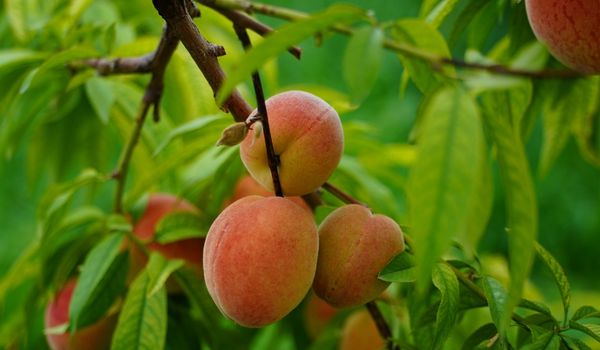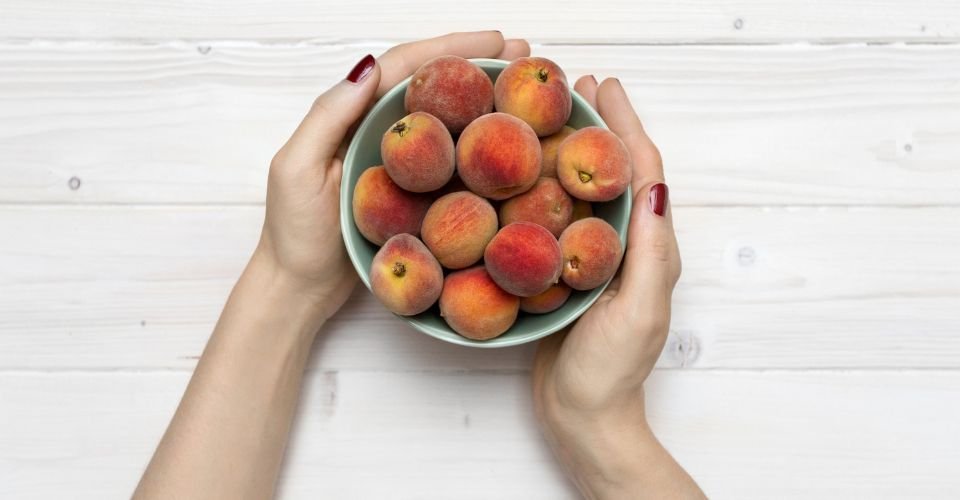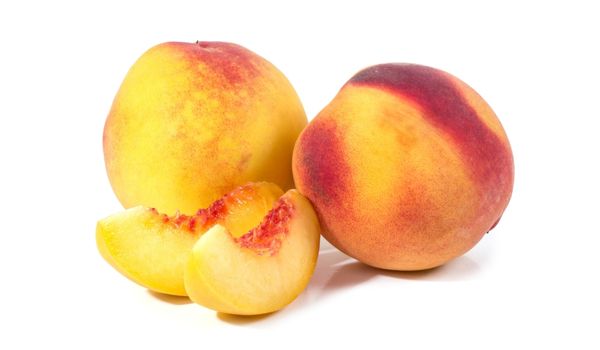Peaches are a summer favorite for many. Its soft, juicy flesh is delicious to taste and can be enjoyed in a million different ways. And it is hard not to share the summer delicacy with your pooch, you get up to hand it some, but something forces you to stop in your tracks. Can dogs eat peaches?
Like, there are so many guidelines out there, and it is hard to keep up. And there is your pup looking up at you with excitement in its eyes; you have to decide if it is getting the fruit or a nice little game of fetch (as compensation).
Let us dig out the right answer as you read along.
Can Dogs Eat Peaches?
Yes, dogs can occasionally eat peaches in small chopped-up bits.
Peaches are healthy for humans. A rich source of fiber, carbohydrates, nutrients like vitamins K and E, several minerals, and some proteins, peaches could also be healthy snacks for your dog. The best part is, despite all its goodness, it is a low-calorie diet.
But here is the catch, it has higher sugar and carbohydrates compared to proteins in its nutrient profile. It is not a composition that a dog should ideally be given or even choose if given a choice against a higher protein food.
This means your pup could enjoy bits of pitted, chopped-up peaches only a few times while the season lasts. Since canned or preserved fruit is sugar-laden and could prompt serious digestive trouble for the dog. As for the frequency, stick to the 90-10 rule when it comes to the dog food and snack balance. Only 10% of the canine diet should comprise snacks, most of which should ideally be good sources of protein.
Related Read: Can Dogs Eat Apricots?
Are Peaches a Healthy Snack for Your Dog?
Though not the best, peach is a highly nutritious food. This means that while it is not something that must appear on your pup’s weekly menu, it could still benefit from all the nutrients present in peaches.
Fruits have earned quite a name for being rich sources of fiber, vitamins, and minerals, and peaches are no different. A Rutgers University resource informs us that besides being a low-calorie, fiber-rich food, it is also a wonderful source of several nutrients and minerals such as vitamins K & E, iron, potassium, manganese, magnesium, copper, phosphorus, and zinc.
You May Like to Read: Can Dogs Eat Plums?
Niacin, a form of vitamin B 3, choline, and folate are also included in the nutrient mix offered by the fruit.
| Nutrient Profile of a Peach | |
| Nutrient | Amount (g) |
| Carbohydrate | 15 |
| Protein | 1 |
| Fat | 0.5 |
| Fiber | 2 |
| Sugar | 13 |
| Energy | 50 |
* Energy is given in calories
These are some of the vital nutrients needed for the health and well-being of your dog. And while there are better ways of accessing these nutrients for the pet, they could still benefit from these when the fruit is taken in moderation.
Not sure if dogs appreciate peaches at all? Watch this sweet, well-behaved black dog gobble it up while its human feeds it some.
How Should You Give Your Dog Peaches to Eat?
Sure, peaches taste amazing, and we do know now that it is okay to share some of this delectable goodness with our dogs, but there are some pitfalls we need to avoid. Like, there is a reason that veterinarians rally together to tell people off for sharing their table scraps with their pets, right?
Dogs have different nutritional demands, and the foods we stuff our faces with all the time could be potentially toxic to them. So, here we are, compiling a little advisory of sorts for you, so you could give some yummy fruit to your dog guilt-free.
Related Read: Can Dogs Eat Avocados?
Thoroughly Wash

Okay, we know this one is pretty obvious. But it is important to wash all the fruits and vegetables before use thoroughly. Just because they come from a highly maintained store with spotless shelves, it does not mean there would be no pesticide residues.
Not to mention the preservatives applied on some of the produce to increase their shelf life. So, no matter how reliable you think the place from where you source your fruits and veggies, wash them properly before you prepare or eat them.
Remove the Stone, Leaves & Branches
You might think, what the big deal is, as the pit of the peach fruit is hard, the dog would not bother. The trouble is, besides being a choking hazard should the dog decide to rise to the occasion, it is toxic to dogs. You read that right.
The peach pit houses a sugar-cyanide called amygdalin. If the dog chances upon the fruit while you are taking a stroll near a peach tree, by all means, restrain it, as the same compound resides within the leaves and stem.
Cut into Slices
Lastly, it is time to serve the yummy treat. Since the whole fruit has the potential to lodge in the esophagus or the food canal, it would be wise not to leave it up to your dog to take smaller bites.
Circumvent the trouble by chopping the fruit into smaller bite-size slices and inviting your dog to indulge in its summer treat.
Things to Avoid When Serving Peaches to Your Dog
Ah, if you thought you went through all the precautions already, it is time to refresh your memory. While we have discussed how to share the food with your beloved pup, there are still more things you need to keep in mind never to do.
Let us take a look at our “not-to-do” list.
Canned Peaches
Did we mention that it is only the fresh peach fruit your dog could munch on? The reason is pretty straightforward. Canned fruits often come loaded with a sugary syrup. All that sugar is too much to handle for the pooch’s stomach. A
ll these artificial sweeteners are designed for the human clientele; therefore, the chances of your dog digesting it without encountering any digestive issues are pretty slim. Not to mention all the extra sodium you would be pumping into their system.
A similar argument is made against the preserved variety, which could introduce high sugar content into the pup’s digestive system. Neither look like a very healthy choice, do they?
Frequent Serving
Dogs are carnivores and have an in-built preference for high-protein foods. Though scientists fail to comprehend the mechanism, dogs naturally tend to opt for foods with a higher protein content when given a choice. Peaches, even though they are low calorie, are composed of a higher carbohydrate and sugar content, with much lesser protein.
While still chockfull of nutrients, it is not something dogs need too often. So, if you do wish to indulge your pet with peaches, find a balance. Remember the 10% rule we discussed above. And if it is something sugary, like a fruit, keep it small and infrequent.
Letting the Pit Lie Around
Despite their affable personalities and commitment to their human families, dogs remain curious. They have a protective instinct, and many enjoy a little challenge. Combined, this should mean that if a curious, colorful intricately-structured peach pit is lying around, they might want to learn about it, explore it, and chew it.

It poses double trouble. The stone is laden with amygdalin, a dog toxin, and is itself rough and abrasive in texture. Although it will take loads of peach stones, stems, or leaves to create a toxin-related medical emergency, it would still cause trouble. And if the dog swallows it, the pit will end up causing physical harm to the food pipe, besides causing a choking hazard.
Final Word: Can Dogs Eat Peaches?
Yes, peaches are succulent masses of soft flesh, and your dogs have all the right to enjoy them. Only they should be given fresh, properly washed, pitted, and finely diced servings. Frozen options are also great, but preserved, canned, frequent, or large offerings are big no, no as they could upset their stomach.
Similar Articles:


